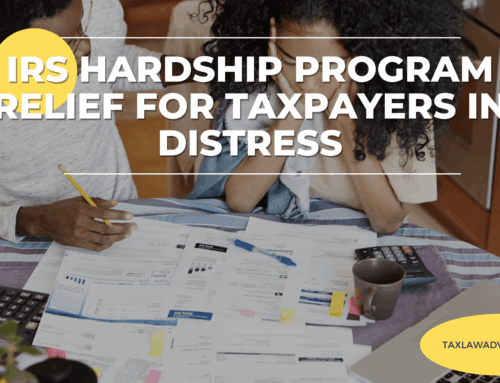If you’re facing an IRS levy that’s causing financial hardship, it’s time to take action. The IRS can be a beast when it comes to collecting debts, but you’ve got options to protect yourself and your finances. Let’s walk through what you need to know about handling an IRS levy, why it’s happening, and how to get relief. And if you haven’t already heard of about it, be sure to check out the IRS Fresh Start Program to help you eliminate tax debt.
What is an IRS Levy?
First off, let’s break down what an IRS levy actually is. When you owe taxes, the IRS has the authority to seize your property to satisfy your debt. This can include garnishing your wages, taking money from your bank account, or even seizing and selling your property.
The IRS doesn’t just wake up one day and decide to levy your assets. They send multiple notices and give you ample opportunity to settle your debt before taking such drastic measures. But if you ignore these notices, it’s like ignoring a ticking time bomb—it’s only a matter of time before it goes off.
For more detailed info, check out this IRS Guide on Levies.
Why Is the IRS Levying My Assets?
If you’re wondering why you’re in this pickle, it’s usually because you’ve failed to pay your taxes or didn’t respond to IRS notices. This can happen for various reasons:
- Financial Hardship: Sometimes life throws curveballs, and paying taxes falls by the wayside.
- Unfiled Returns: If you haven’t filed your tax returns, the IRS will estimate what you owe—and it’s usually not in your favor.
- Incorrect Information: Mistakes happen, but they can lead the IRS to believe you owe more than you do.
How to Stop an IRS Levy
Now, let’s talk solutions. If an IRS levy is causing you financial hardship, here are some steps you can take to stop it:
1. The Easy Option — Contact Us Immediately
Sometimes the best thing you can do is seek professional help. Tax professionals can negotiate with the IRS on your behalf and guide you through the complex process of getting a levy released. If you’re feeling overwhelmed, reach out to us at Tax Law Advocates for expert assistance.
2. Contact the IRS Directly
If you don’t want professional help, then you need to communicate with the IRS. Ignoring the problem won’t make it go away. Call the number on the levy notice and explain your situation. The IRS may temporarily halt collection efforts to review your case.
3. Prove Financial Hardship
To get the levy released, you’ll need to prove that it’s causing financial hardship. This means showing that the levy is preventing you from meeting basic living expenses like housing, utilities, and groceries. The IRS will require documentation, so be prepared to provide bank statements, pay stubs, and a list of monthly expenses.
4. Set Up a Payment Plan
The IRS offers payment plans that allow you to pay your debt in manageable installments. Setting up a payment plan can often halt collection actions, including levies. Learn more about setting up a payment plan with the IRS.
5. Apply for an Offer in Compromise
An Offer in Compromise (OIC) lets you settle your tax debt for less than you owe. This isn’t a get-out-of-jail-free card; you have to meet specific criteria to qualify. But if approved, it can significantly reduce your financial burden. Find out if you qualify here.
5. File for Innocent Spouse Relief
If your spouse’s tax issues are dragging you down, you might qualify for Innocent Spouse Relief. This can relieve you from penalties associated with your spouse’s incorrect or omitted tax information. More details can be found here.
Final Thoughts
Dealing with an IRS levy causing hardship is stressful, but you don’t have to tackle it alone. By understanding your options and taking proactive steps, you can navigate this challenging situation and regain control of your finances.
If you’re ready to take the first step toward resolving your tax issues, don’t wait. Contact us at Tax Law Advocates and let’s get started on turning your financial situation around.
Remember, financial peace isn’t just a dream—it’s a decision. Make that decision today.






